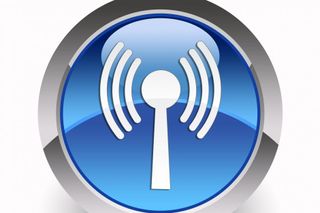Ofcom launches white space pilot to free up spectrum for wireless devices
Ofcom has already signed up Microsoft, BT, Neul and a host of ISPs to take part in white space trial.

Ofcom has embarked on a UK-wide "white space" wireless technology trial, with 20 public and private sector organisations already signed up to take part.
The regulator claims white space, the name used to describe the gaps in the frequency bands used to broadcast digital terrestrial TV, could be used to run a range of wireless applications and devices.
Some of these white spaces are used by other applications, explained Ofcom, but only at certain times. This means, when they're free, they can be used to run wireless devices.
This is an excellent opportunity for the UK to help lead in the world of spectrum and one that could deliver huge benefits to society.
"White space devices would access the spaces at times when they are vacant by communicating their locations to a database designed to minimise the risk of interference with any existing users," said Ofcom, in a statement.
"This is a creative and efficient way to get the most from spectrum the vital but finite resource that supports all wireless technology."
The amount of white space up for grabs varies according to its location, the time of day and the power level of devices, explained Ofcom.
The aim of the Ofcom trial is to ascertain if white spaces can be used to meet the growing demand for wireless-enabled devices, such as tablets and mobile phones, and to ensure the UK's wireless infrastructure can cope with the pressure imposed on it by the emergence of the internet of things.
Get the ITPro. daily newsletter
Receive our latest news, industry updates, featured resources and more. Sign up today to receive our FREE report on AI cyber crime & security - newly updated for 2024.
The pilot will run for six months, and tech giant Microsoft has agreed to take part by seeing if white spaces can be used to provide free Wi-Fi access in Glasgow.
It will also work with the University of Strathclyde's Centre for White Space Communications to see if it is possible to use white space to link sensors around Glasgow that could potentially transform it into a smart city.
BT and mobile wireless data service provider Neul are also taking part in the trial and will work with the Department for Transport to see if white space can be used to transmit information about traffic congestion along the A14 between Felixstowe and Cambridge.
Meanwhile, internet service providers Click4Internet, KTS and SineCom have been enlisted to see if white spaces can be used to deliver broadband services to remote rural areas.
Ed Richards, chief executive of Ofcom, said safeguarding spectrum will play an important in the future success of the UK's digital economy.
"The upcoming white space pilot is a very exciting development, which has attracted an impressive line-up of participants, ranging from global tech giants to innovative UK start-ups," said Richards.
"This is an excellent opportunity for the UK to help lead in the world of spectrum and one that could deliver huge benefits to society."




